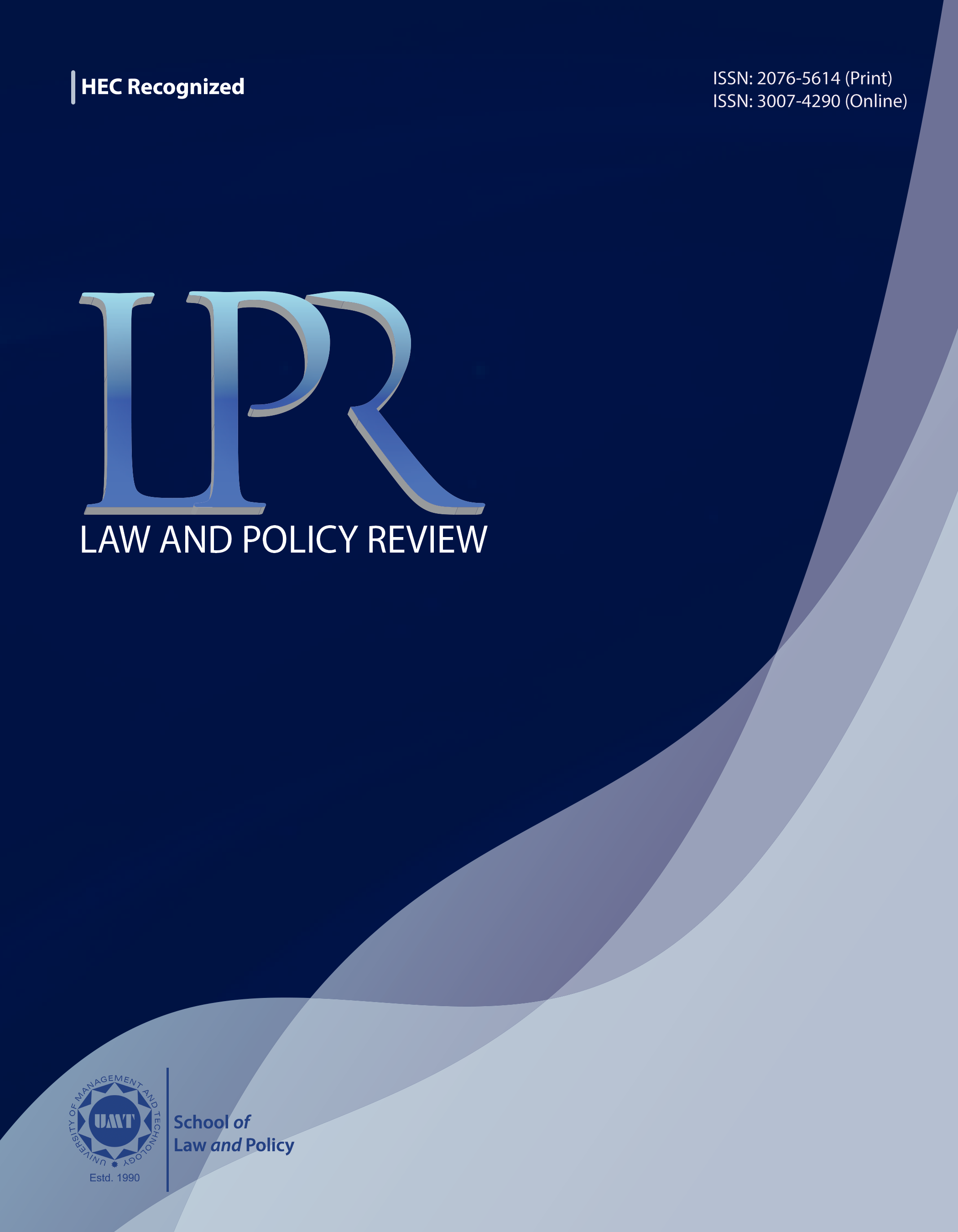Zakat Exemptions under Pakistani Law: An Analysis of Case Law
Abstract
 Abstract Views: 0
Abstract Views: 0
Zakat is a religious fiscal obligation for Sahib-e-Nisab Muslims, holding a central space in the Islamic economic system. Its principles are described by the religion which are specific. This article discusses the jurisdiction of the Federal Shariat Court on the law of zakat. It also examines the judicial decisions of superior courts of Pakistan on the matter of exemptions in zakat (religious fiscal obligation) deduction. According to judicial interpretations of zakat laws, all those institutions that are owned by the government or in which the provincial or federal government holds majority shares are exempted from the definition of Sahib-e-Nisab. NIT Units and KDCs are exempted from tax due to payment of zakat at source, but any asset that is made and derived from them is not exempted. Zakat exemptions are available for charitable trusts and public bodies. This article concludes that tax concession will be granted for assets on which zakat is compulsorily deducted under the Zakat Ordinance in the same year of deduction. The main purpose of this concession is to avoid the burden of double taxation on the payee. However, it is recommended that exemptions based on fiqh and faith should not be permitted. Therefore, there is a need to amend the zakat system to make it consistent with the Islamic zakat system and to discontinue the compulsory deduction of zakat at source.
Downloads
References
Administrator General Zakat v. Pakistan Insurance Corporation, PLD SC 468 (2016).
Al Qaradawi, Y. A. (2002). Fiqh Al Zakat (vol.1). Mo’ asasat Al Risalah.
Bank Alfalah Limited v. Administrator General of Zakat, Islamabad, PLD Lahore 426 (2009).
Commissioner of Income Tax v. Messrs AGRO General Insurance Co. LTD., PTD Karachi 1047 (2005).
Commissioner of Income Tax v. Messrs Azlak Enterprises (Pvt.) LTD., Karachi, PTD Karachi 1309 (2003).
Dr. Mahmood ur Rahman Faisal v. Government of Pakistan, PLD FSC 35 (1991).
Dr. Mahmood ur Rahman Faisal v. Government of Pakistan, PLD SC 607 (1994).
Federation of Pakistan through Secretary, Government of Pakistan v. Miss Farzana Asar, PLD SC 476 (1999).
Hassan Ali Esaji Bhaiji Trust v. Administrator, Central Zakat Administration, Islamabad, PTD Karachi 43 (1991).
Income Tax Appellate Tribunal, PTD 1294 (1992).
Income Tax Appellate Tribunal, PTD 1818 (2002).
Income Tax Appellate Tribunal, PTD 299 (2003).
Income Tax Appellate Tribunal, PTD 804 (1991).
Market Committee, Chichawatni District Sahiwal v. Federation of Pakistan, CLC Lahore 118 (1991).
Maudoodi, A. A. (1970). Ma’ashiyat e Islam. Islamic Publications.
Mian Khalid Rauf v. President of Pakistan and another, PLD FSC 237 (1982).
Miss Farzana Asar v. Messrs National Investment Trust through M.D, PLD Karachi 335 (1991).
Mst. Farishta v. Federation of Pakistan, PLD SC 120 (1981).
Pakistan Telecommunication Employees Trust v. Federation of Pakistan, PLD SC 718 (2017).
Pakistan Tobacco Company Limited v. Administrator General of Zakat, PLD Islamabad 135 (2017).
Powell, R. (2010). Zakat: Drawing insights for legal theory and economic policy from Islamic jurisprudence. University of Pittsburgh Tax Review, 7, 43–101.
Qaiser A. Manoo v. Income Tax Appellate Tribunal, Lahore, PTD Lahore 2070 (2005).
Suo Motu Action Regarding Combating the Pandemic of Corona Virus (COVID-19), SCMR 930 (2020).
The Bank of Punjab v. Administrator General, Central Zakat Administration, Islamabad, and three others, PLD Lahore 207 (1994).
Usmani, M. T. (1994). Aap zakat kis tarah ada karayn? [How you can pay zakat?]. Memon Islamic Publishers.
Copyright (c) 2024 Rasham Armab Saikhu

This work is licensed under a Creative Commons Attribution 4.0 International License.
LPR follow an open-access publishing policy and full text of all published articles is available free, immediately upon publication of an issue. The journal’s contents are published and distributed under the terms of the Creative Commons Attribution 4.0 International (CC-BY 4.0) license. Thus, the work submitted to the journal implies that it is original, unpublished work of the authors (neither published previously nor accepted/under consideration for publication elsewhere). On acceptance of a manuscript for publication, a corresponding author on the behalf of all co-authors of the manuscript will sign and submit a completed the Copyright and Author Consent Form.





